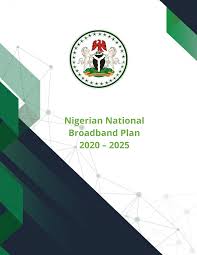A University don, Dr Abdulkarim Oloyede, has urged the Federal Government to ensure full implementation of the 2020-2025 National Broadband Plan in order to boost the country’s digital economy.
Oloyede, a lecturer in the Department of Telecommunication Science, University of Ilorin, made the call on Monday in an interview with newsmen at the university campus in Ilorin.
He commended the Minister of Communication and Digital Economy, Dr. Isa Pantami for his resolve to ensure that Nigerians connect their phone lines to the National Identification Number (NIN).
Oloyede, who is also the African representative on the At Large Advisory Board of the Internet Corporation of Assigned Name and Numbers, noted that the rollout of broadband services will address various socio-economic challenges facing the country.
He said this includes the need to grow the economy, create jobs, improve digital literacy and educational standards.
Oloyede added that the plan would also promote the dynamics of the Nigerian digital economy.
In his comment, Dr Nasir Faruk, also in the Department of Telecommunication Science, urged the government to ensure that the plan is effectively executed in the interest of Nigerians.
He noted that affordable broadband access in all towns and villages across Nigeria would help accelerate the growth of the nation’s digital economy.
Faruk who was the 2018 UNILORIN Researcher of the Year, observed that it would be difficult to achieve 90 percent broadband penetration with the current state of telecoms and broadband infrastructure in the country.
He however said that the 90 percent broadband penetration was achievable under a favourable environment.
Faruk explained that the new Broadband Plan was designed to deliver data download speeds across Nigeria of a minimum 25Mbps (megabits per seconds) in urban areas, and 10Mbps in rural areas.
He said that this would be possible with effective coverage to at least 90 percent of the population by 2025 at a price of not more than N390 per 1GB of data.
Faruk expressed optimism that the NIN-SIM linkage would help the government address the current insecurity challenges facing the country.
He urged Nigerians to link their NIN to their phone numbers without further delay, while appealing to the government to extend the deadline from April 6 to May 6, for subscribers to complete the exercise.
According to him, the number of registered and verified NINs have exceeded 51 million.
“Nigeria is the largest mobile telecommunications market in Africa, largely based on rapid development following the successful auction of Digital Mobile Licenses (DML) in 2001.
“As at December 2019, the market served over 184 million Mobile lines, with 126 Million of those lines connected to Internet services,” he said.

 Football6 days ago
Football6 days ago
 Entertainment5 days ago
Entertainment5 days ago
 Football7 days ago
Football7 days ago
 Football7 days ago
Football7 days ago
 Business4 days ago
Business4 days ago
 Football5 days ago
Football5 days ago
 Crime6 days ago
Crime6 days ago
 Football6 days ago
Football6 days ago

